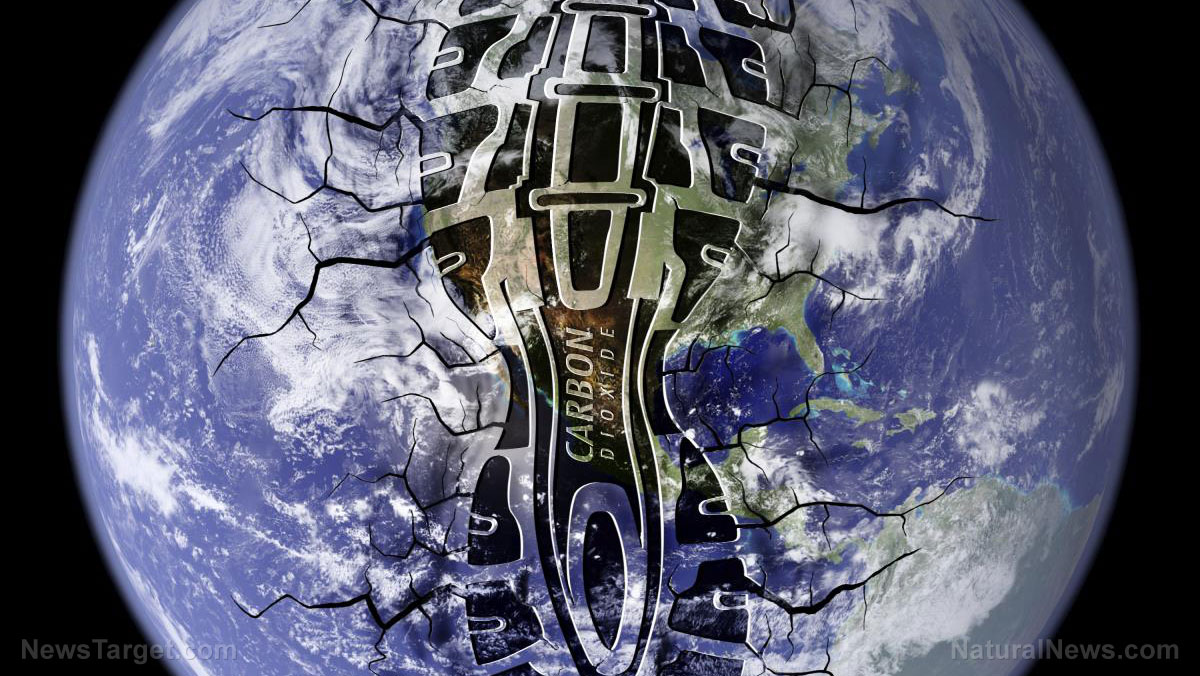World Economic Forum claims $3.5 trillion is needed annually to “decarbonize” our planet… code word for DEPOPULATION
12/22/2023 / By Cassie B.

The World Economic Forum is now claiming that it needs trillions of dollars each year to “decarbonize” the planet and reach its extreme goals for the environment.
This is according to a white paper that they published on Wednesday in partnership with McKinsey & Company entitled “The Role of Public-Private-Philanthropic Partnerships in Driving Climate and Nature Transitions.”
The report’s highlights section notes: “The world needs up to $3.5 trillion of additional investments each year to reach net-zero and restore nature.”
They are also calling for a “system-level transformation” to meet climate goals, which entails four main parties. The public sector, they say, can implement policies, regulations and incentives and invest money in solutions that support the WEF’s self-serving plans. They go on to say that the private sector, which includes corporations that attract investor support, can set up business models and mobilize resources to deploy “solutions” at scale.
Jordan Schachtel of the Dossier called out the group for saying in the paper that “private organizations should surrender their autonomy to governments in exchange for an endless amount of credit and a backstop of protection should their business fail in the open market.”
In other words, businesses that buy into the globalists’ decarbonization agenda will have access to credit, while those who are not on board can forget about being successful.
The $3.5 trillion they claim they need is such a high number that it can be difficult to comprehend. To put it in perspective, it represents nearly 60 percent of the U.S. annual federal budget.
The report comes just weeks after the World Economic Forum released a different report calling for $13.5 trillion to avoid what they claim will be a climate catastrophe. In that report, they explained how the cost of transitioning to the carbon-neutral future that they claim, against scientific wisdom, will save the planet will require a global investment of $13.5 trillion by 2050.
They warn that if industries such as transportation, energy and manufacturing are not transformed, the cost for humankind could be a lot higher.
“Decarbonization” equals wiping out life on the planet
In this report, the World Economic Forum talks so much about fast-tracking “decarbonization” that the term is mentioned 91 times in the memo.
Of course, decarbonization is just a euphemism for eradicating life on the planet. Getting rid of carbon means getting rid of people, animals and plants, all of which are made of carbon. Plants rely on it for photosynthesis, so without carbon, there would essentially be no more food crops to feed the planet.
The World Economic Forum is not exactly known for having logical takes on the issues facing the world. It’s not surprising when you consider that its founder, Klaus Schwab, said in an interview on Chinese state television that China’s communist regime is a “role model” for all countries.
Clips from the last WEF meeting in Davos exposed how the group wants to leverage the water crisis as a reason to create a world government; an agenda contributor to the group explained condescendingly that although climate change has not helped further their cause, a water crisis could be more useful to them because even less intelligent members of the public understand the importance of water.
The group plans to host its next yearly meeting in Davos next month, and it will undoubtedly come with more calls to make huge investments to “save the planet” by getting rid of life-supporting carbon.
Sources for this article include:
Submit a correction >>
Tagged Under:
absurd, big government, carbon dioxide, Climate, climate change, conspiracy, decarboniazation, deception, depopulation, Ecology, environment, finance riot, globalists, green living, Green New Deal, green tyranny, insanity, lunatics, money supply, propaganda, world economic forum
This article may contain statements that reflect the opinion of the author




















